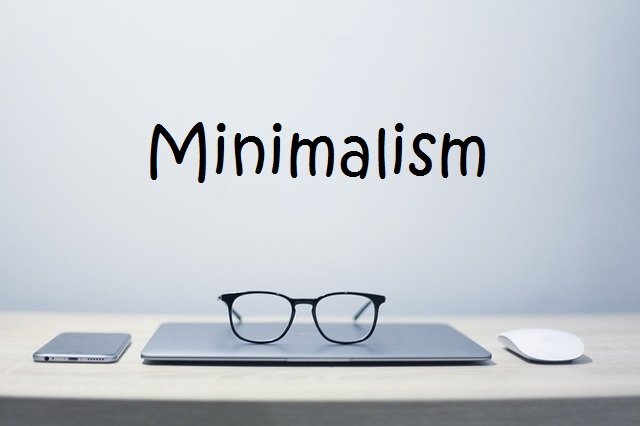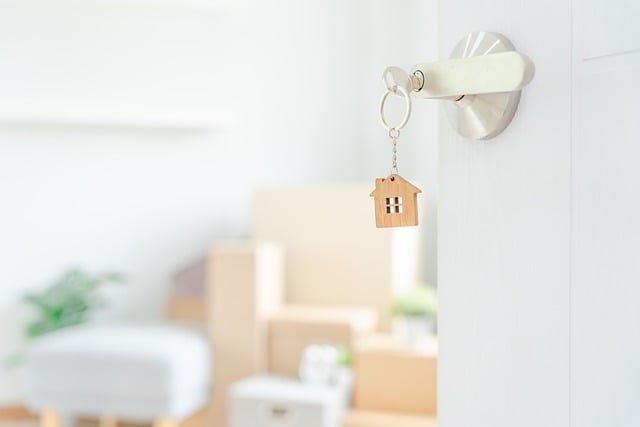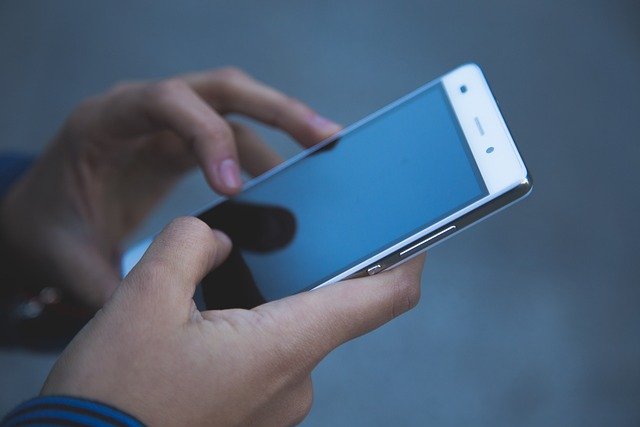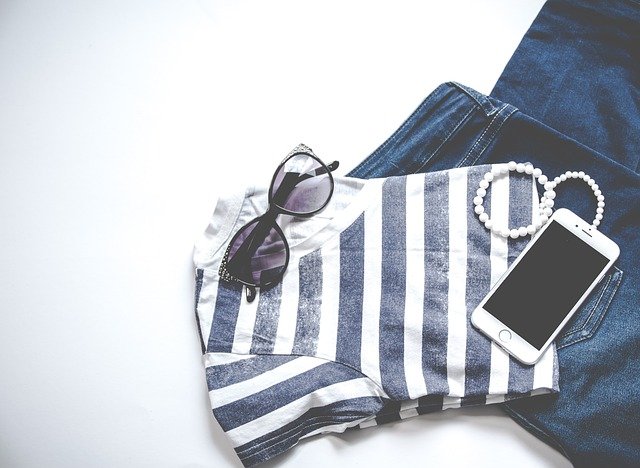Buongiorno amici di Italy,

Image Pixabay Source
Oggi infatti si parla molto di minimalismo in contrapposizione al consumismo. In temini semplici il minimalismo si basa sull'idea di non circondarsi di oggetti e comprare solo quelli davvero necessari per vivere. Questo riguarda i vestiti, i mobili, i soprammobili e anche il cibo.
Però il minimalismo non è rivolto solo all'esterno e quindi al consumismo generale o alla società, ma al nostro stile di vita e al nostro equilibrio personale.
Per diventare minimalisti si dovrebbe fare una cernita degli oggetti e vedere quali ci sono veramente utili, oppure a quali siamo davvero affezionati perchè magari sono un ricordo a cui non vogliamo rinunciare.
Già questo è un buon metodo per fare un po' d'ordine, perchè il disordine in casa o in una stanza, crea disordine anche nella nostra mente, questo per me è assolutamente vero. Non sono particolarmente ordinata e ogni tanto devo sforzarmi di rimettere le cose a posto e buttarne altre davvero inutili. (Gli oggetti che invece sono utili e nuovi si possono regalare ad associazioni varie)
Minimalism was born in the 60s and applied to architecture, but soon extended to lifestyle, and crosses every aspect of existence in a transversal way.
In fact, today there is a lot of talk about minimalism as opposed to consumerism. In simple terms, minimalism is based on the idea of not surrounding yourself with objects and buying only those that are truly necessary for life. This applies to clothes, furniture, ornaments and even food.
However, minimalism is not aimed only at the outside and therefore at general consumerism or at society, but at our lifestyle and our personal balance.
To become a minimalist, we should sort out the objects and see which ones are really useful to us, or which ones we are really fond of because maybe they are a memory we don't want to give up.
This is already a good method to create some order, because the mess in the house or in a room creates mess in our minds too, this is absolutely true for me. I'm not particularly tidy and sometimes I have to force myself to put things back and throw away other really useless ones. (Objects that are useful and new can be donated to various associations)

Image Pixabay Source
Ed è qui che ho apprezzato alcuni aspetti del minimalismo, perchè mi sono resa conto durante gli anni che acquistavo abiti che non avrei mai usato, magari non mi stavano neanche bene, solo perchè in quel momento mi sentivo felice ad averli. Non ho mai speso tanto, ma i soldi non c'entrano perchè possiamo comprare anche magliette da 5 euro al mercato pensando che tanto sono pochi soldi, così accumuliamo senza rendercene conto.
Così non si tratta solo di sentirsi in colpa per aver speso dei soldi o per comprare cose inutili, ma è più un modo di vivere organizzati e apprezzare al meglio quello che si ha. Banalmente acquistare un oggetto nuovo solo quando il vecchio davvero non serve più e non perchè è uscita l'ultima versione, un esempio su tutti lo smartphone.
But the minimalist's real challenge comes at the time of purchase. We often get carried away by really superficial purchases, like yet another shirt or pair of shoes that we really don't need.
And it is here that I appreciated some aspects of minimalism because I realized over the years that I bought clothes that I would never use, maybe they didn't even fit me, just because at that moment I felt happy to have them. I've never spent that much, but money has nothing to do with it because we can also buy 5 euro t-shirts at the market thinking that it's not much money, so we accumulate without realizing it.
So it's not just about feeling guilty about spending money or buying useless things, but it's more about living organized and appreciating what you have to the fullest. Trivially buying a new item only when the old one is really no longer needed and not because the latest version has come out, an example above all the smartphone.

Image Pixabay Source
Così, vale la stessa regola di non andare al supermercato affamati... cioè non andare a guardare i negozi quando si è un po' giù di morale... altrimenti si rischia di acquistare cose che non useremo...
A questo proposito ognuno ha il suo tallone d'achille: scarpe, libri, cibo, borse, cellulari, attrezzi per il bricolage... talvolta compriamo oggetti pensando che siano necessari, o che useremo, ma non è così.
Magari quelli che abbiamo sono ancora nuovi, possono essere aggiustati, o sono identici a quelli che vorremmo comprare, ma abbiamo dimenticato di averli..
Il minimalismo non c'entra molto con i soldi, ci sono persone benestanti che non comprano in modo compulsivo, anzi sono molto attente alle loro spese. D'altra parte possiamo vedere persone con difficoltà economiche, spendere i soldi duramente guadagnati per oggetti che tutto sommato non sono necessari, per esempio scarpe e borse di marche prestigiose...
It's true that technically we can live on a few pairs of shoes and some clothes, but I've never liked extremes! I rather like the idea of not getting carried away by the emotionality of the moment and in recent years I have learned to get rid of that urge to want something new, or to "go out just to look at the shops", a very dangerous practice :D
Thus, the same rule of not going to the supermarket hungry applies... that is, don't go looking at the shops when you are a little down... otherwise, you risk buying things you won't use...
In this regard, everyone has their Achilles heel: shoes, books, food, bags, mobile phones, DIY tools... sometimes we buy objects thinking they are necessary, or that we will use, but that's not the case.
Maybe the ones we have are still new, can be fixed, or are identical to the ones we would like to buy, but we forgot we had them..
Minimalism has nothing to do with money, there are wealthy people who don't buy compulsively, on the contrary, they are very careful about their spending. On the other hand, we can see people with financial difficulties, spending their hard-earned money on items that are all unnecessary, for example, shoes and bags of prestigious brands...

Image Pixabay Source
E' vero che un effetto collaterale è certamente il risparmio, e con gli stessi soldi possiamo investire in modo oculato sui nostri hobby, viaggi ed esperienze piuttosto che oggetti, o anche non spendere nulla e accantonare tutto per i tempi bui...
Credo che la forza del minimalismo, insieme ad altri concetti, come la sostenibilità, sia quella di aver sdoganato comportamenti che anni fa avremmo bollato come “tirchieria”. Ricordo benissimo negli anni 80 da ragazzina le prese in giro per chi a scuola comprava le scarpe al mercatino, mentre si ostentavano le marche fighe del tempo su scarpe e giubbotti. E chi le portava era figlio di operaio o contadino, non certo di persone benestanti... ci si svenava pur di apparire.
Ma non è certo un fenomeno scomparso, anzi, ancora oggi qualcuno potrebbe storcere il naso a vederci con un'auto usata, uno smartphone datato, o presentarci a una cresima con un vestito già usato l'anno prima... solo che ora possiamo dire con orgoglio: non compro cose inutili sono minimalista!
It is true that a side effect is certainly savings, and with the same money, we can invest wisely in our hobbies, travel, and experiences rather than objects, or even spend nothing and set everything aside for the dark times...
I believe that the strength of minimalism, together with other concepts, such as sustainability, is that it has cleared behaviors that years ago we would have branded as "stinginess". I remember very well in the 80s as a little girl the teasing of those who bought shoes at the market at school, while the cool brands of the time were flaunted on shoes and jackets. And whoever wore them was the son of a worker or farmer, certainly not of wealthy people... they fainted in order to appear.
But it is certainly not a disappeared phenomenon, on the contrary, even today someone could turn up their noses at seeing us with a used car, or an outdated smartphone, or present us for a celebration with a dress already used the year before... only now we can proudly say: I don't buy useless things I'm a minimalist!
